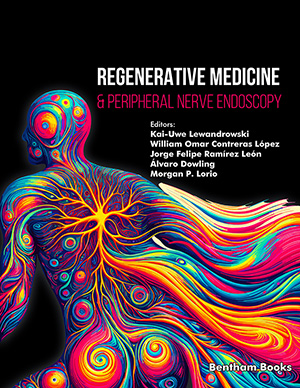Introduction
ISSN: 3082-8171eISSN: 3082-818X
ISBN: 978-981-5274-47-9
eISBN: 978-981-5274-46-2 (Online)
Neuroendoscopy and Interventional Pain Medicine is a clinically focused medical monograph series. With contributions from a team of internationally recognized neurosurgeons and spinal surgery specialists, the series aims to illuminate the latest advancements in minimally invasive neurosurgical techniques and pain management. Each volume offers invaluable insights into the future of minimally invasive treatments in this medical subspecialty.
Regenerative Medicine & Peripheral Nerve Endoscopy is the first of the monograph series. It provides information on regenerative medicine and therapy for back conditions such as degenerative disc disease, vertebral endplate degeneration, spinal cord injury, herniated discs and carpal tunnel syndrome. Chapters highlight new stem cell therapies, PRP injections, bioengineering strategies and other minimally invasive interventions.
Key Features
- - Covers a wide range of topics in neuroendoscopy and interventional pain medicine
- - Emphasizes evidence-based approaches to treatment
- - Offers clinical perspectives from expert surgeons
- - Includes scientific references for researchers and advanced learners
It is an essential resource for readers who need to enhance their understanding of the latest technological advancements in neuroendoscopy and interventional pain medicine and apply these innovative techniques to improve patient outcomes.
Readership
This book is designed for a broad audience, including interventionalists, surgeons, medical students, healthcare professionals, and policy-makers involved in the care of patients with degenerative conditions of the neuroaxis.

